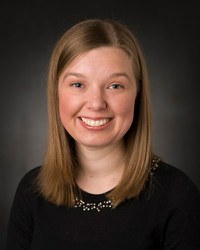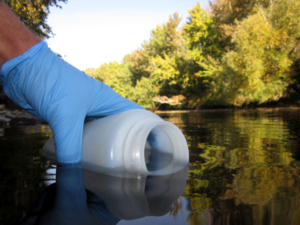We recently had the pleasure of speaking with Dr. Heather Gall at Pennsylvania State University (PSU) and learn more about her work and new National Science Foundation award. Gall has just started to work on a citizen science project that tracks unregulated chemicals in the Susquehanna River. Although she has funding for 50-60 volunteers, Gall received overwhelming interest from 125 applicants interested in helping her project. She hopes these volunteers will become part of the solution through this water-quality focused program.

Dr. Heather Gall
Although all wastewater is treated according to regulations, many compounds found in pesticides, pharmaceuticals, and personal care products are not regulated and can contain endocrine-disrupting compounds (EDCs), which can alter sexual development in marine species, causing population die-offs. Gall explained, “with the lack of current water regulations or standards and the pressing need for research to better understand the chemicals’ presence, fate, transport, and impacts, citizen scientists can participate in identifying potential courses of action and desired legislation.”
Gall proposed a multi-faceted approach to educating the public about EDCs in their everyday products. Her team developed an online tool that estimates the amount of EDCs in household products by breaking the products down into three categories: health and beauty, laundry, and cleaning. The tool identifies 55 EDCs based off a report from the Silent Spring Institute, and then gives suggestions for lowering EDC waste. Eventually, Gall would like to turn the tool into an app so that it is more convenient for users, although the tool has already been used about 200 times.

Volunteers will be provided with test kits, instructed how to use them and assigned a coordinate on the Susquehanna River to sample surface water for endocrine-disrupting compounds this spring. Source:PSU
Volunteers for the citizen science project will learn how to use the tool, and then will be provided with test kits to sample surface water from the Susquehanna River. The volunteers will report the EDC levels in their samples, and then help design future research directions and even legislation to reduce EDCs in the environment. Gall explains, “by doing this research with citizen scientists, we can help people understand that potentially dangerous compounds in products they use every day ultimately make their way through wastewater treatment plants into their streams. Given the lack of water-quality standards, the quickest way to reduce their presence in the environment is for people to become more informed consumers.”
In addition to this new project, Gall also recently presented a poster at the American Geophysical Union Conference in December and had a paper published in Stochastic Environmental Research and Risk Assessment in January. In her paper, Gall evaluated the effectiveness of vegetated filter strips (VFSs) at trapping sediments and nutrients from entering runoff water on the edges of crop fields. They explored the effects of precipitation on VFS effectiveness and the performance of the VFSs over time.
